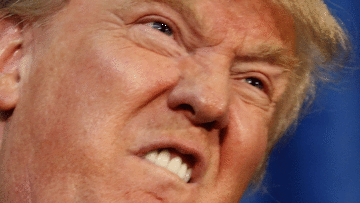Why psychiatrists aren't supposed to say Trump is a narcissist

Donald Trump, the presumptive Republican nominee for U.S. President in November's general election, is not only comically narcissistic, but his tongue ticks off diagnostic criteria for pathological arseholedom with every demented sentence. But pyschiatrists can't say so, because we've been here once before.
Both psychiatrists and psychologists operate under ethical rules that prevent them from offering professional diagnostic opinions about the mental health of public figures they have not personally examined. The American Psychiatric Association's version of this is known as the Goldwater Rule - named for another polarizing Republican presidential candidate.
The rule has its roots in the September/October 1964 issue of a magazine called Fact,which was entirely devoted to parsing the results of a survey the editors had sent to more than 12,000 psychiatrists. The survey only had one question: "Do you believe Barry Goldwater is psychologically fit to serve as president of the United States?"
There were lawsuits, and Goldwater won them. Hence:
On occasion psychiatrists are asked for an opinion about an individual who is in the light of public attention or who has disclosed information about himself/herself through public media. In such circumstances, a psychiatrist may share with the public his or her expertise about psychiatric issues in general. However, it is unethical for a psychiatrist to offer a professional opinion unless he or she has conducted an examination and has been granted proper authorization for such a statement.
Shrinks will dance up to the rules and tip-toe on the thorns, though. Check out The Atlantic's not-a-diagnosis of Trump's narcissistic personality disorder.